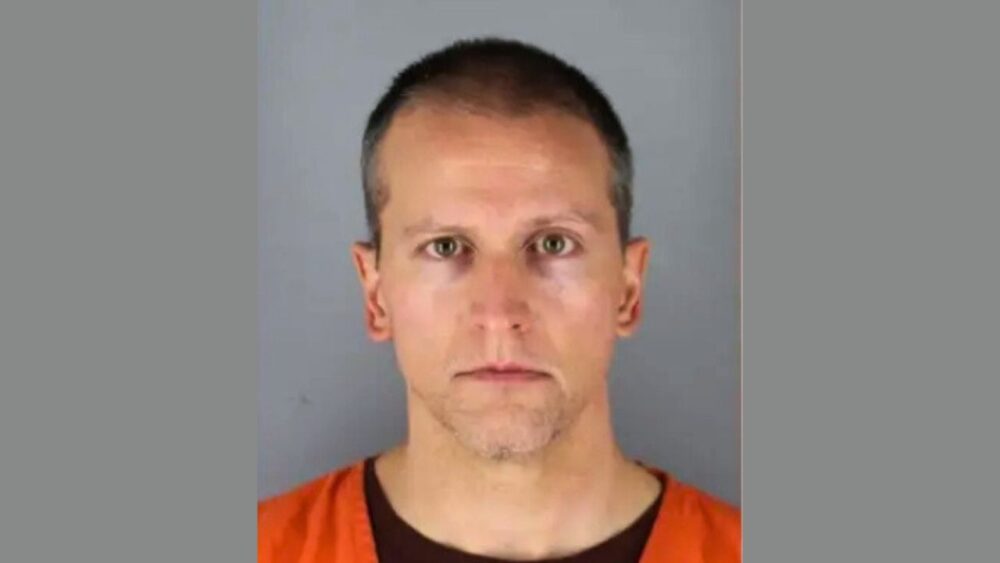A fiery exchange between Reps. Marjorie Taylor Greene and Jasmine Crockett reignited the national debate over George Floyd’s death as rumors grow of a possible presidential pardon for former Minneapolis police officer Derek Chauvin.
The dispute began on May 14 when Rep. Greene (R-GA) posted on social media: “I strongly support Derek Chauvin being pardoned and released from prison. George Floyd died of a drug overdose.” Attached was a screenshot of a headline referencing a potential pardon.
Rep. Jasmine Crockett (D-TX) fired back, posting a screenshot of Greene’s tweet along with a scathing rebuttal: “Marjorie, I know the truth confuses you and facts ain’t your strong suit—so let me break it down real slow: George Floyd didn’t die from drugs. He died because Derek Chauvin knelt on his neck for 9 minutes. That’s called murder. We all saw it.”
Greene responded from an alternate account with another tweet, doubling down on her claim: “George Floyd died from a drug overdose… Jasmine Crockett doesn’t care about Americans killed by drugs like George Floyd, she cares about protecting cartels from being deported.” She included an image of Floyd’s toxicology report indicating elevated levels of fentanyl and norfentanyl.
George Floyd died from a drug overdose.
He was one of the hundreds of thousands of Americans killed by fentanyl that is trafficked across our border by cartels.
Jasmine Crockett doesn’t care about Americans killed by drugs like George Floyd, she cares about protecting cartels… https://t.co/ikwpLnecjQ pic.twitter.com/Bs6apqrVov
— Rep. Marjorie Taylor Greene🇺🇸 (@RepMTG) May 15, 2025
Fentanyl is a synthetic opioid up to 100 times stronger than morphine. It is often used legally for severe pain management but has become a leading driver of overdose deaths in the U.S., frequently trafficked illicitly and mixed with other substances. Norfentanyl is a primary metabolite of fentanyl, indicating use or exposure. Toxicologists say even small amounts of fentanyl can suppress breathing, particularly when combined with other drugs or health conditions.
George Floyd, a 46-year-old Black man, died on May 25, 2020, in Minneapolis after former officer Derek Chauvin knelt on his neck for more than nine minutes during an arrest. Video of the incident, in which Floyd repeatedly said he couldn’t breathe–– including before Chauvin knelt on him–– sparked global protests against police brutality and “systemic racism.” The phrase “I can’t breathe” became a rallying cry during the weeks of riots that followed.
Chauvin, who was fired from the Minneapolis Police Department, was charged with murder and manslaughter in state court. In April 2021, he was found guilty on all counts, including second-degree unintentional murder, and sentenced to 22.5 years in prison. Separately, he pleaded guilty to federal civil rights violations in 2022 and received an additional concurrent 21-year sentence.
He is currently serving time at a federal correctional facility in Texas. He was transferred to Texas after being stabbed 22 times in an Arizona prison.
Because Chauvin is serving both state and federal penalties, any presidential pardon would apply only to his federal sentence. Multiple officials in Minnesota, including Minneapolis Mayor Jacob Frey and Hennepin County Sheriff Dawanna Witt, have reportedly been briefed on the potential for riots if President Donald Trump pardons Chauvin.
When reporters asked him in March whether he was considering such a pardon, Trump responded, “No, I have not heard about that.”
Nevertheless, the Minnesota Department of Corrections has reportedly made contingency plans. Sources told KSTP that if Chauvin is pardoned federally, the department is prepared to transfer him back to the state’s maximum-security facility at Oak Park Heights to complete his original 22.5-year state sentence.
“He still owes Minnesota 22-and-a-half years. And, he’s going to do it either in Minnesota or somewhere, but he’s not getting out,” Minnesota Attorney General Keith Ellison said.
Gov. Walz echoed that cautious posture on Monday: “No indication whether they’re going to do it, or not, but I think it behooves us to be prepared for it. With this presidency, it seems like something they would do.”
The Minneapolis Police Department and other agencies say they are apparently monitoring the situation.
“We’ve heard the same rumors as everyone else – but the bottom line is that Derek Chauvin would remain behind bars serving his state sentence even if his federal charges are pardoned,” the city’s Community Safety Commissioner Toddrick Barnette said to KSTP in a statement.
“To be clear, we have no credible intelligence about any pardon or planned disruptions here in Minneapolis. Since 2020, we’ve overhauled our emergency management plans and out of an abundance of caution are planning for any eventuality.”


